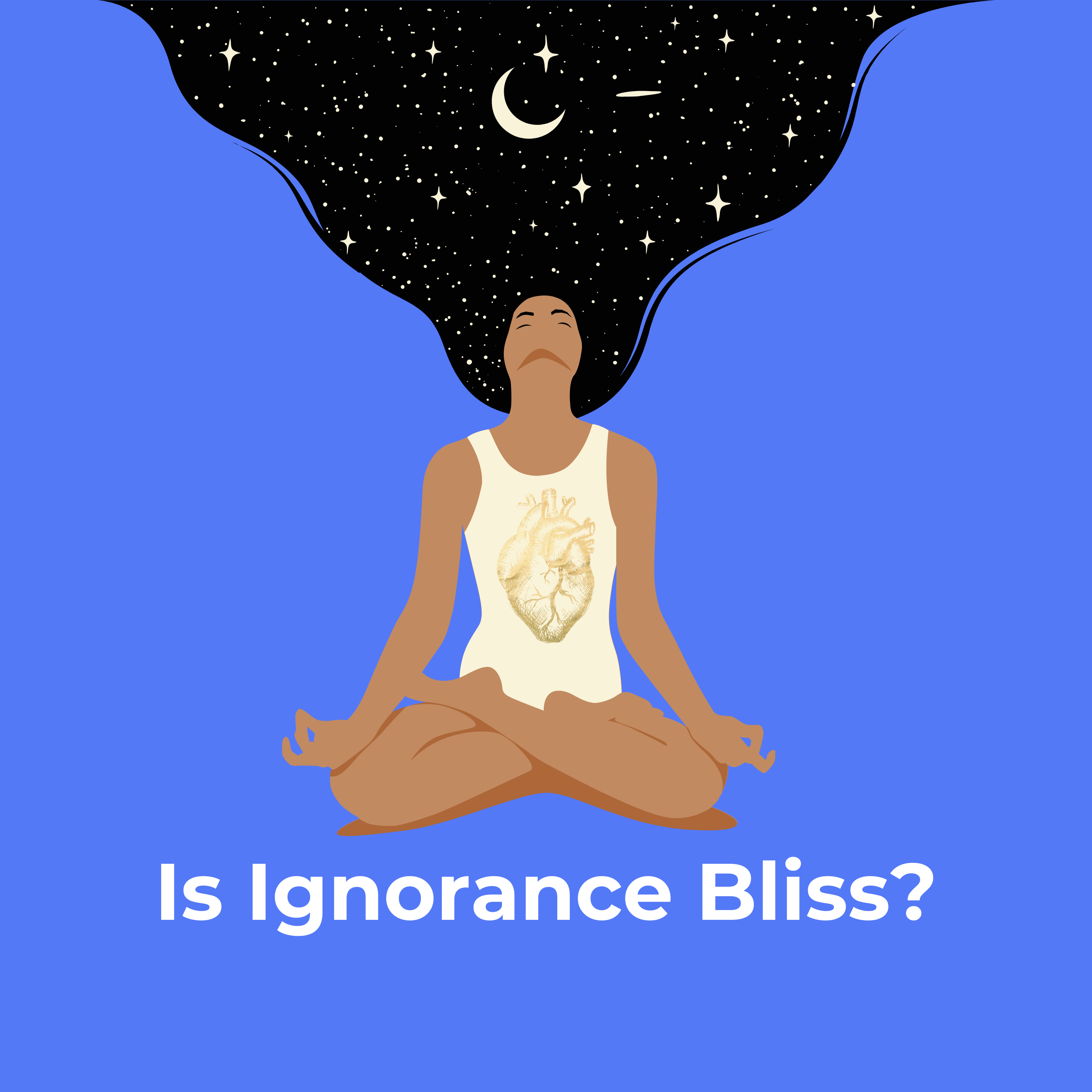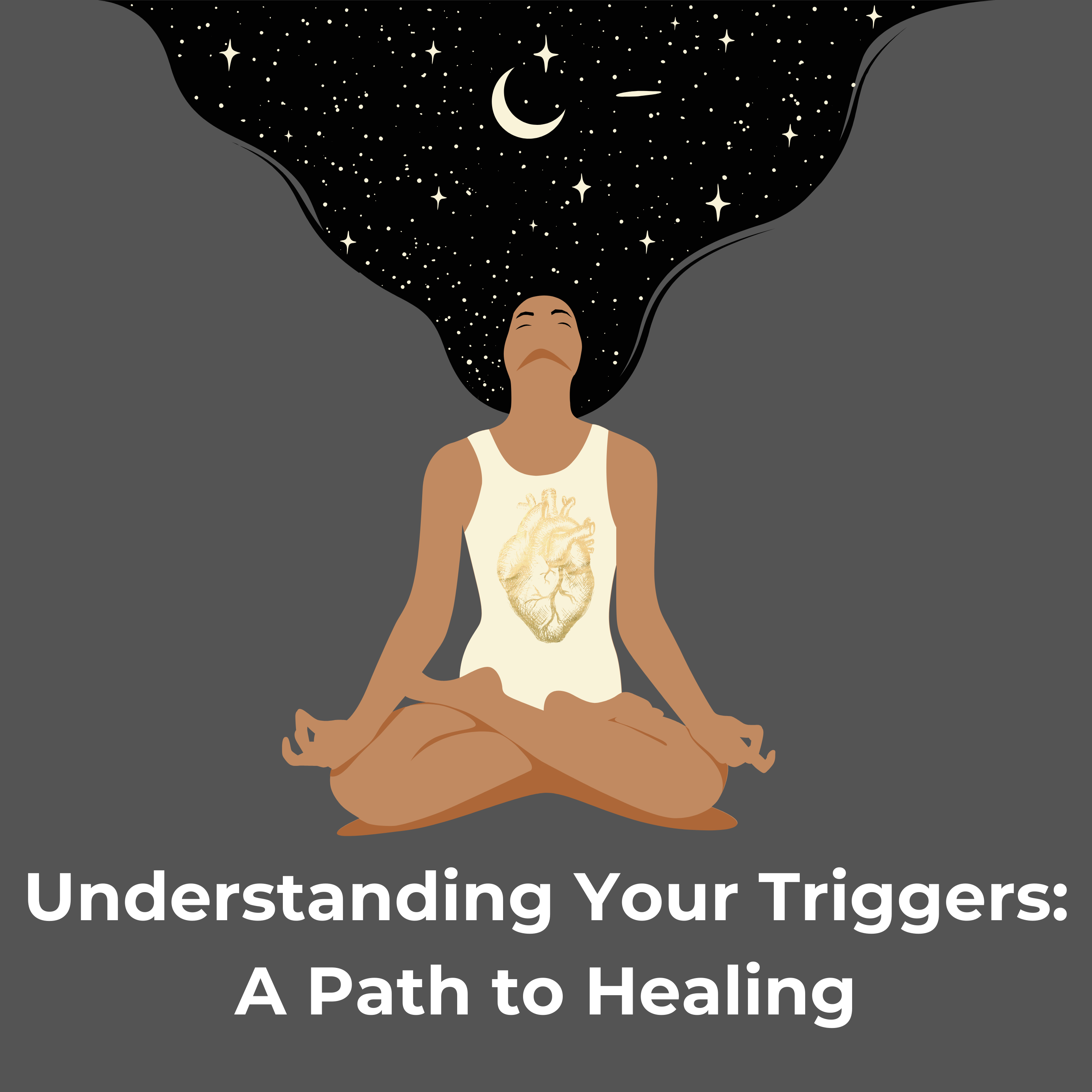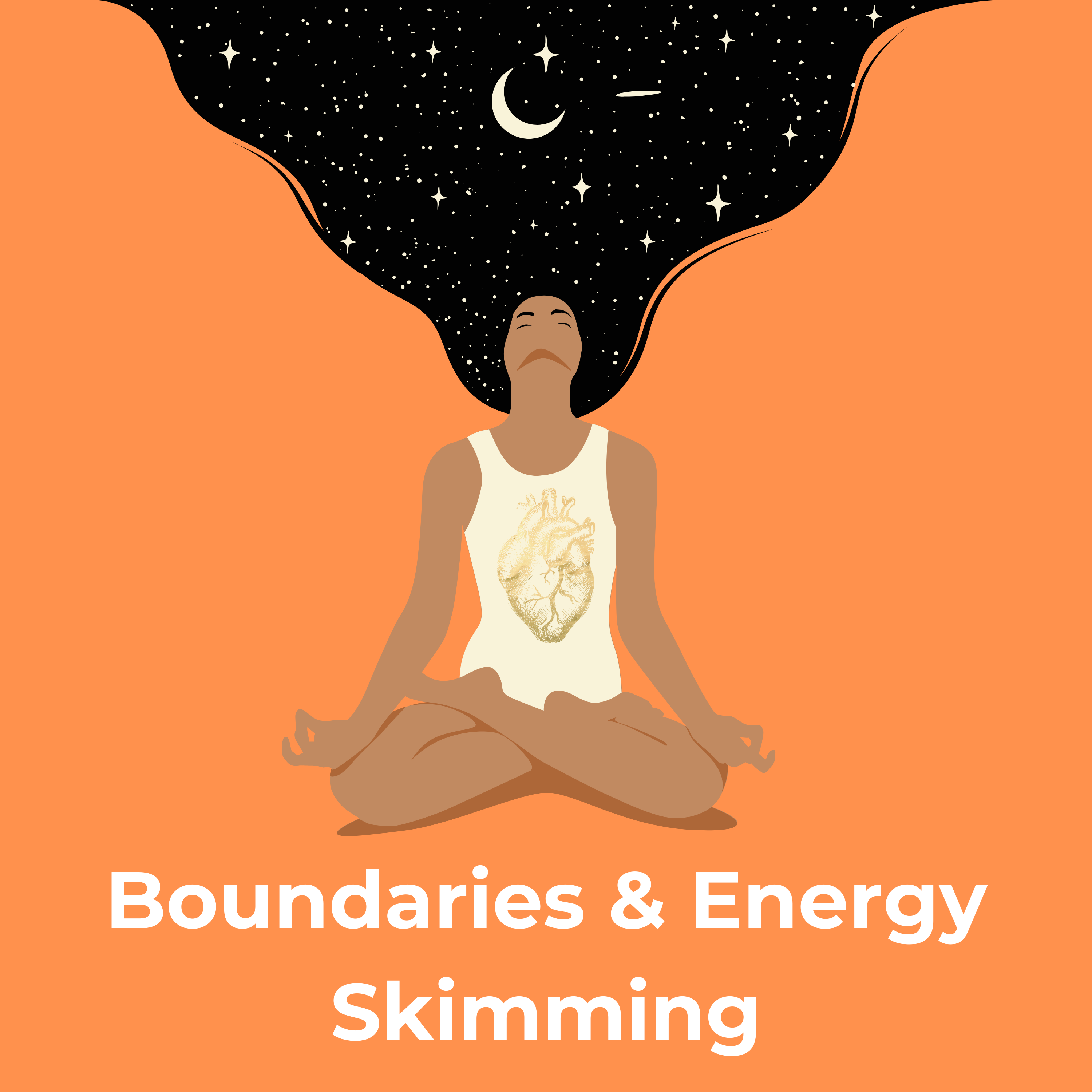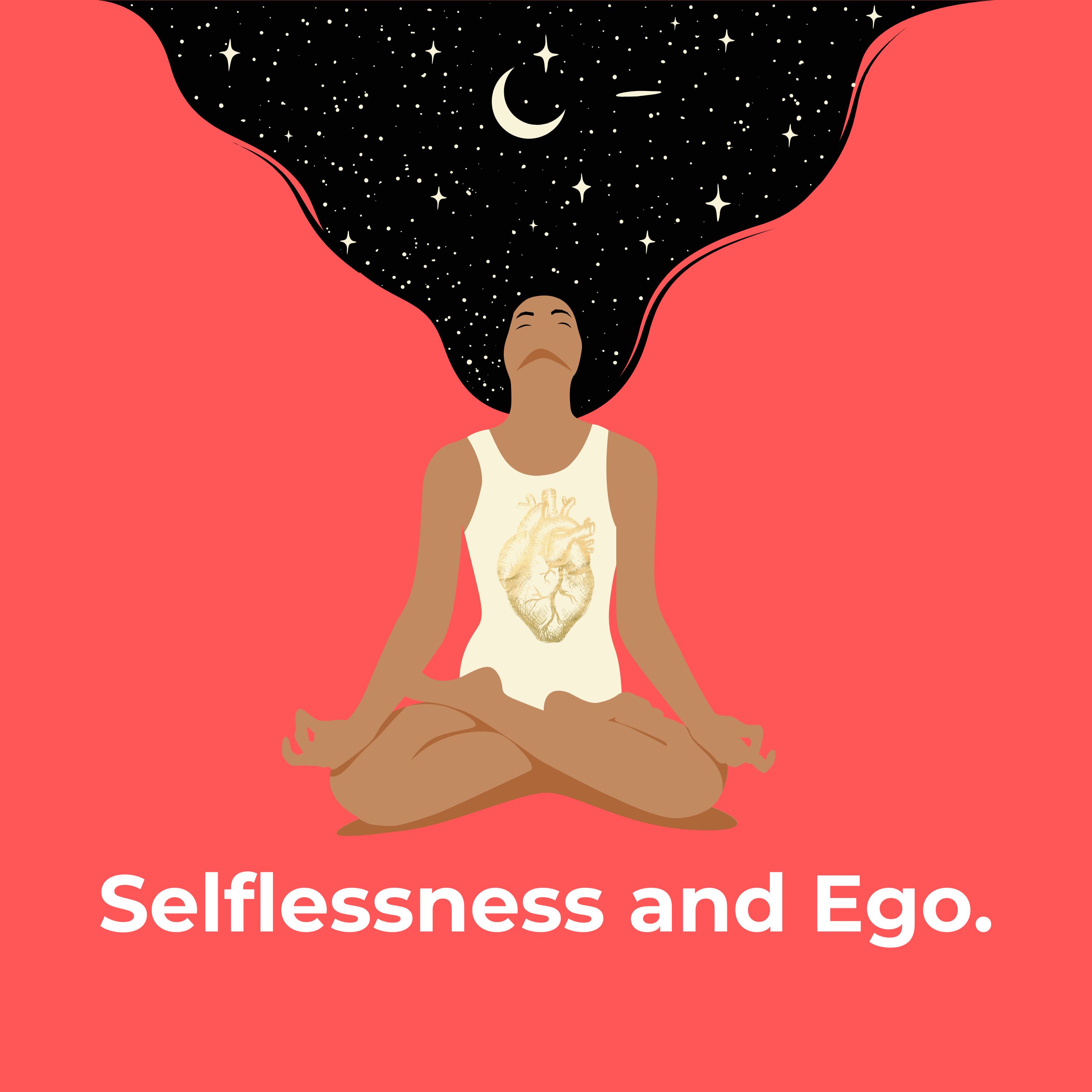Episode Transcript
[00:00:00] Speaker A: The world of healing can be treacherous, but suddenly, spiritual aims to provide real, honest, practical, spiritual knowledge and wisdom for the true seekers among us.
The goal is to ignite the divine human within each listener, raising the collective consciousness for our planet. We will challenge your preconceptions, push your buttons, and encourage deep reflection. We're not here to adhere to the status quo of what the new age spiritual market wants you to buy into and believe. Consider this your antidote to the woo woo and a place of woo yu.
[00:00:56] Speaker B: Ever wonder what the signs are that you're not listening to your intuition?
I mean, you probably already know, but just to make it a little more into sharper focus for you, what I find is when I'm not listening to my intuition, what happens is I'll start to get very indecisive and not normal. Let me pick the right choice type of thing. It's more so just very uncomfortable. And I'll oscillate back and forth between decisions or different choices, and I'll start to think of all the potentialities of every single road of a choice. And it's paralyzing.
It creates so much stagnation in your life because you're clouding your intuition and you're not listening to it, because deep down inside, you know what the right path for you in that moment is, but you're just not allowing it to come forward, because there's a deep lack of faith in yourself and trust in yourself. And I think that the cornerstone of intuition, really the foundation of it, is trust in faith in oneself.
And the trust in faith is very hard to cultivate, especially in our world and in our cultures and society today, because we're so externally motivated to get information about what we should and should not do, what we should and should not want. And so the indecision is really a sign for me that, hey, oh, no, I'm getting lost in the sauce, so to speak, of my decisions and choices and the outcomes of those choices, because I'm not listening to my intuition. And some of us will have just that still, small voice that will tell us, you know, go this way, or you should do this, or I think this would be great for you, but then we disregard it. And what happens with intuition is the more you disregard it, for most people, it just becomes quieter and quieter because you're not growing it, you're not expanding it, you're not feeding it. For some people, depending on how strong their intuition is and how much they've worked with it in the past, sometimes it becomes so loud that it's, it can seem a little menacing, but that indecision which causes stagnation, is based off of the lack of faith and trust within your own intuition.
[00:03:48] Speaker C: That's really interesting. And for the listeners out there, I can talk about maybe a situation or situations I've gone through where I'm just going along my merry way, and then I get this idea, whatever it is. Hey, buy this thing for your business. You need this. And then I look at it, I'm like, I get all excited. I actually go to the website, I'm about to hit order, and then I go, do I really need this?
And then I wake up the next day, I'm like, oh, yeah, yeah, I gotta get that. I'm like, do I really need this? And then I look at how much it costs, and I'm like, yeah, but you know what? I have this amount of money now.
I can pay all these bills, but if I have faith that I buy this thing and my bank account goes down, I have face that I'm going to make more, and then I don't buy it. But then I keep thinking about buying, then I go, it's in the cart. And then I don't buy it, and then it keeps coming back.
So for those going through that and me going through that too, it's like by the third or fourth time, it kind of becomes like a carrot where I just. I dismiss it, but I keep thinking about it.
What is that indicating?
[00:05:09] Speaker B: Your intuition really is trying to break through.
And for me, with intuition and messages specifically for others, it can get tricky with messages for others, because people who are intuitive are tapped into that realm of the astral realm. The astral realm is a realm where all thoughts, all thought forms, all beliefs exist, every belief and thought that ever existed. Like, what happens to an emotion or a thought after you're done experiencing it, where do you think it goes? In my perspective, it goes into this realm, this astral realm, where when we sleep, we enter into the astral realm. So again, it's the repository of all thoughts, beliefs, feelings, everything that has ever been encountered on this planet, and some would say the entire universe is there. So I've been in the astral realm. As I said, all of us have. If this is the perspective that you want to believe in, and we're not here to tell anyone what to believe in, so take what resonates, leave the rest behind for me. When I go into the astral realm and I am in a place where maybe is not comfortable for me, through lucid dreaming and the practice of lucid dreaming, I'm able to go to another realm within the astral, where it's a little more pleasant, more pleasant neighborhood. But those thoughts that keep recurring, or your intuition nagging you, lovingly nagging you, that, no, no, no, sean, that piece of equipment really is for you. I know in the third dimensional current live reality model that you're in, your bank account will go down, but you don't know how much more your business will expand because you have this tool.
And again, discernment, we all need discernment. We all need to tap into that internal compass of, am I buying this thing, this piece of equipment, because it's trendy or because it's cool? Or because I saw someone on Instagram who has it? Or is it because it is actually useful? It is true, and it's going to help me move forward in some way within my business or my life for messages with others. Getting back to that, my rule is if something, a message, comes to me three times for someone, then I will disclose it to them.
But I have to make sure that I'm not disclosing it because I want to be the cool person that knows things and has messages for somebody, but rather, this will be helpful, this will be true, and this will be something that the person will find a value and potentially could help them on their path. Not because it's me. You have to remove yourself out of it because your ego can come in and say, oh, don't you want to be the cool oracle that tells this person this thing about their life? No. Has to be. Is this piece of information going to be useful and helpful and valuable to this person? And is it true? So three times is the rule, and then I will disclose the information to that individual. Again, timing is important.
Not telling them in a place where they won't be able to hear it and also detaching yourself from the outcome of them hearing it, because sometimes people will say, that's not true. That sounds like, you know, hogwash, or some people will put you on a pedestal when you give them information, and you can't be attached to that because that goes into ego territory, which we would like to stay away from as much as possible when we can.
[00:09:15] Speaker C: And I'm sure everyone listening is gone through this stuff. You know, they've had discomfort in decision making, repetitive patterns coming back. What are some practices that they can do to harness intuition and mitigate sort of this discomfort and recognizing these patterns?
[00:09:40] Speaker B: What I have found is stillness and quiet.
I have a meditation practice. I understand that meditation practices can feel intimidating for some people because we have all kinds of judgments about what is a good meditator and what is not a good meditator. And am I doing this right? But what I have found, especially, I would say in the last week, because I started to have these wobbles, these wobbles of faith, where I started to get into the loop of not trusting my intuition, not in significant ways, but it was significant enough for me to, you know, raise a hand and say, hey, what's going on here? I need to recalibrate. So what really, really helped me is I'll just sit.
Whether it's on the floor or on a chair or on my bed, I'll sit and I'll just quiet my mind.
And for me, mantras help.
So I will use like a two word mantra of what is bothering me in that moment that I want to release.
I think a few days ago it was, what is service?
And I would just repeat, what is service? What is service? And I only use that, those words. And suddenly I found myself after maybe ten minutes where the words would go away. And then it was just blank space and emptiness and stillness.
And then I could hear my intuition more. But I needed the silence. I needed the lack of distraction. I needed the peace, the solitude of just that single pointed awareness meditation to come back to center. So stillness is an. Is a very important tool, and it can be cultivated and used at any time by anyone.
You don't need to be trained in some form of meditation or anything. There's no equipment needed. You have all the equipment.
[00:12:03] Speaker C: And as you know what I do, I do a lot of listening in my work. And I try to be attentive in every situation and experience the moment.
And for those friends of mine who've talked about this stuff, too, especially meditation and embracing that stillness, when I'm helping people to get rid of filler words when they're trying to speak, I always tell them, I go, look, when you're communicating with somebody, you can only do one thing at a time.
You're either speaking or listening.
And if you're waiting for the other person to stop talking, we have a problem here.
And embracing the stillness is definitely, I think, someone thing everyone can do but talk to me about listening.
[00:13:07] Speaker B: I think without the listening, the stillness can really not be as fruitful as it can be. One of my co facilitator friends, we're a part of a lot of sharing circles and everybody in the sharing circle, not everybody, but many people in the sharing circle. They want to sound witty and funny and they want to position themselves as insightful and all of these things. So they're not listening to anything that anybody else before them is sharing because they're calculating and crafting this beautiful statement of what they're going to say in their sharing circle. When in fact, I. All they need to do is drop into their heart when it's their turn to be present and listen to every single person and what they have to share just to be present in that moment and listen. And then when it's their turn to share, as long as they take a deep breath, drop into their heart and share from that place rather than their mind. It's not a business meeting. It's a sharing circle about your feelings and your experience. You don't need a whiteboard, you know, it's just something that you need to look inside for. And you have all the words, you have everything that you need. Again, all the equipment is there. So not being so concerned with how you're going to look, how you're going to be perceived when you're in relationship with other within a conversation or a sharing circle or whatever it is, when with your. When you're with another. To just be in the present moment and listen. And not only listen, but hear what the person is saying without the mind chatter, the monkey mind jumping from branch to branch about what you're going to say next or waiting for the pause. So it really is about cultivating presence and trust in faith. Trust and faith in oneself. Then when it is your time to speak, that the words will come. You don't need, again, you don't need to create an essay about or a monologue about what you're going to say next. And it comes back to, you want people to think that you're smart. You want people to perceive you in a certain way. So releasing the attachment to that and being present so you can listen and hear what someone is saying.
[00:15:46] Speaker C: That is something hopefully, I think, all the listeners can relate to and hopefully embrace.
[00:15:54] Speaker B: And it's a practice.
[00:15:56] Speaker C: Well, I think you said it earlier, it's a muscle. If you don't exercise said muscle, it will atrophy.
I've had a few of my friends and I've gone through this too, still having trouble with the trust when that intuitive hit comes in and it's not practical. Let's go back to that example, the equipment example, where, hey, this thing's here. It's going to cost this much.
How do I get through that? How do the listeners get through that barrier of trusting as opposed to, well, like you said earlier, here's the 3d world. This isn't practical.
And I know for me, every single time I have just, it comes in and I act.
I feel like I move forward.
But once I did that once or twice, now when that happens, I'm like, yeah, I'm moving forward, so I have that trust. But talk to people who are still that point where it's difficult for them to break through and trust themselves back to muscles.
[00:17:17] Speaker B: I think that trusting yourself in small things first to build your confidence and not jumping off the diving board into the deep, deep waters of things, but trying to trust yourself with small things, so again, you can build that muscle of confidence in your knowing. And small situations come up every single day in life. And I think it could be as simple as, oh, let me take this route to work, or let me call Sean this morning because he popped into my mind this morning, or my friend who's in New York. They, they popped up in my mind, just their name. Maybe I should just leave them a voice memo or something. But just those small places in life. And in order to do that, in order to gain trust through the small things, you have to listen to the small things, you have to even know that they're there.
And that is about slowing down.
Because if you're not, if you're too fast for things and you're moving too quickly within your life and it's become rote and unconscious, just like with mantras and rituals and things that you do habitually, they start to lose their connection to your spirit. When you continuously do them and they become rote, you want to keep going back to your spirit, keep going back to your heart, keep going back to center.
So that, like, I received a mantra a few days ago and this was in silence, actually, because I felt like I wasn't trusting things because, again, I got into the quandary of decision making. So I remember sitting, and the mantra was very simple. It's, I have faith and trust in myself.
I have faith and trust in humanity.
I have faith and trust in God. That's what was given to me. You can use other words, but first start off with I have faith and trust in myself, and then you can use other words for the rest of the mantra that resonate with you.
But trusting myself and believing that I have my best interests at heart and slowing down, I had to slow down to.
For instance, you know, your gps is telling you to go down this freeway in LA. Don't do that. Take the streets.
Oh, I just, there was a huge accident and I missed it. And I didn't go through that aggravation because I trusted in that small voice that said, go this way. So I think rather than trying to take jumps off cliffs, which can be very, very challenging for people, try, try doing small things first to build that muscle, and then you can buy $5,000 equipment. And I have friends who buy, who buy very expensive tools for their businesses and they'll say, you know, it's for my business and it's important and I have faith in it. And I honestly never seen it go sour for them.
But they, they had to practice it. They had to build up to that. It wasn't an overnight thing.
And you need to have patience with yourself. Patience is also about faith and trust because when you have patience, you are sure of the outcome, and that's why you can be patient.
[00:21:17] Speaker C: And for all the listeners out there, you're not alone in being intuitive.



